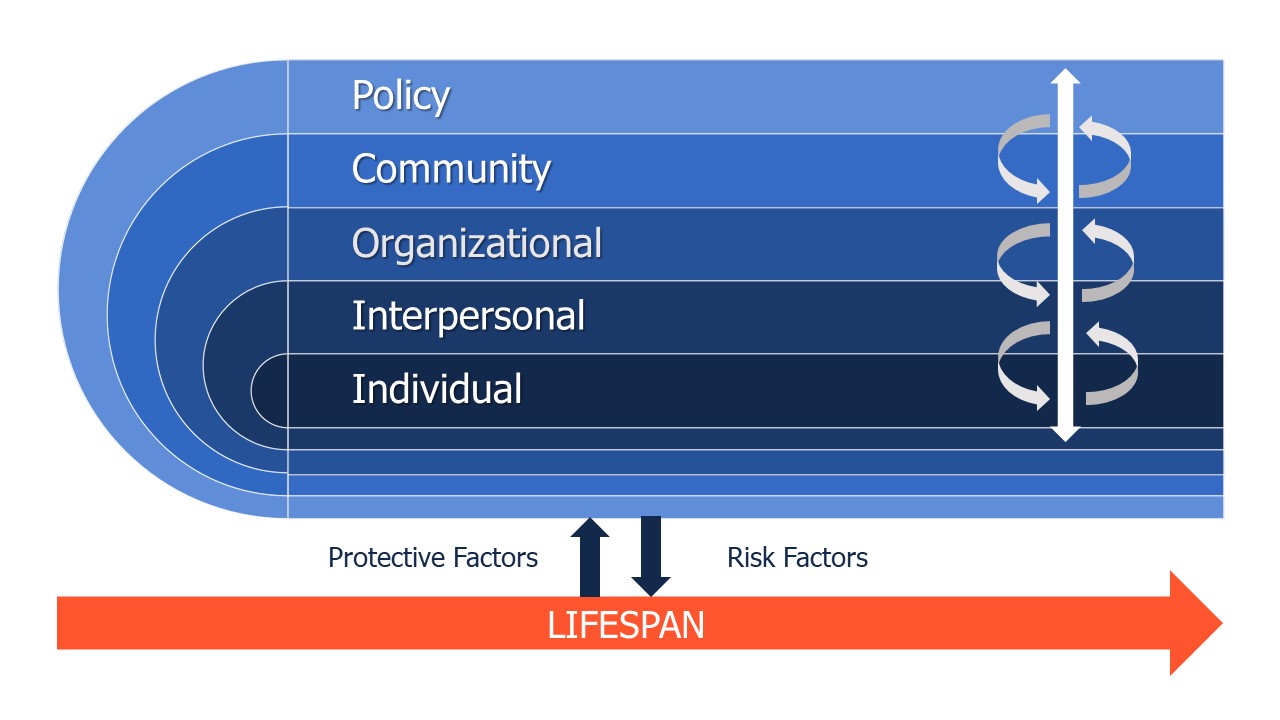Our research team, led by Dr. Rachel Hoopsick, uses epidemiologic methods and a socio-ecologic perspective to study substance use and mental health among populations with high-stress occupations and life circumstances. 

What is epidemiology?
Epidemiology is a foundational component of public health and can be defined as “the study of the distribution and determinants of health-related states or events in specified populations, and the application of this study to the control of health problems.” Epidemiologic research focuses on understanding and quantifying the complex relationships between exposures and outcomes at the population level to better inform our public health prevention, intervention, and policy efforts. Our research team uses epidemiologic research methods to examine factors that affect substance use-related outcomes and mental health symptomatology at a population level.
What is the Social Ecological Model?
The Social Ecological Model (SEM), adapted from ecological systems theory, is a framework for understanding how people affect and are affected by their social and physical environments. Bronfenbrenner’s multilevel ecological model is comprised of a series of nested systems which interact to impact individual behavior. These nested systems include the microsystem (immediate environment such as family, peer group, and the workplace), mesosystem (linkage between two or more microsystems), exosystem (indirect influence process in which two or more environments interact), and the chronosystem (change or consistency over time). While most research on substance use and mental health focuses on individual-level influences, our research also considers the interpersonal, organizational, community, and policy factors that affect substance use and mental health outcomes over the lifespan.
